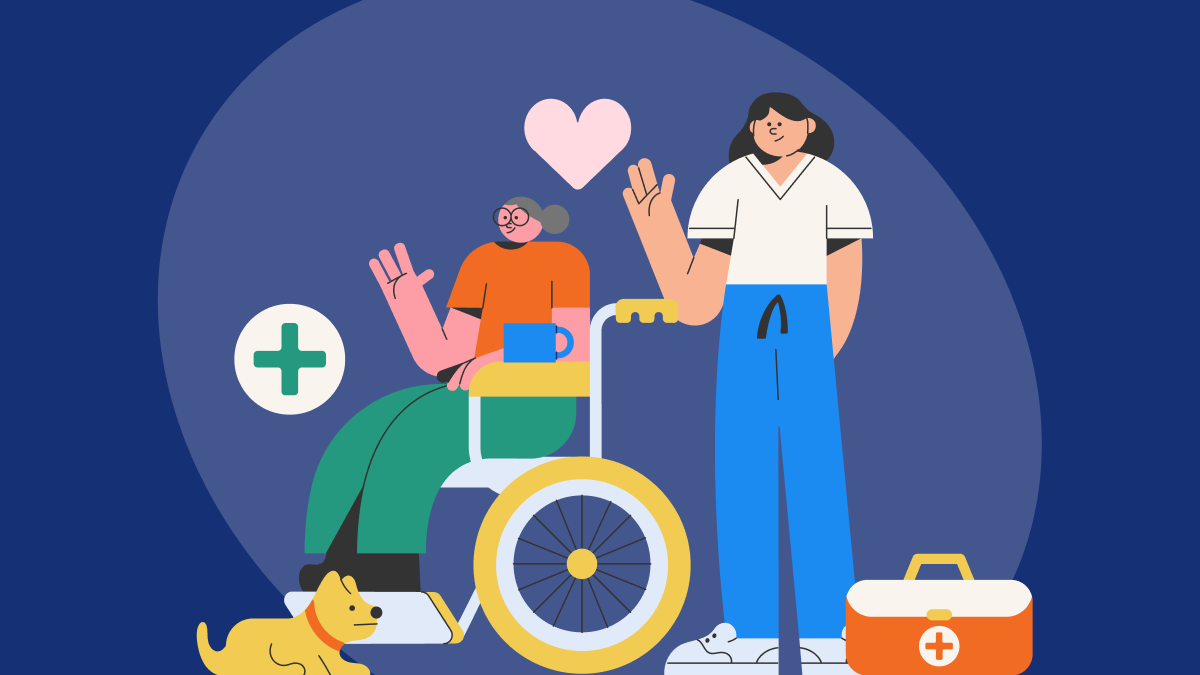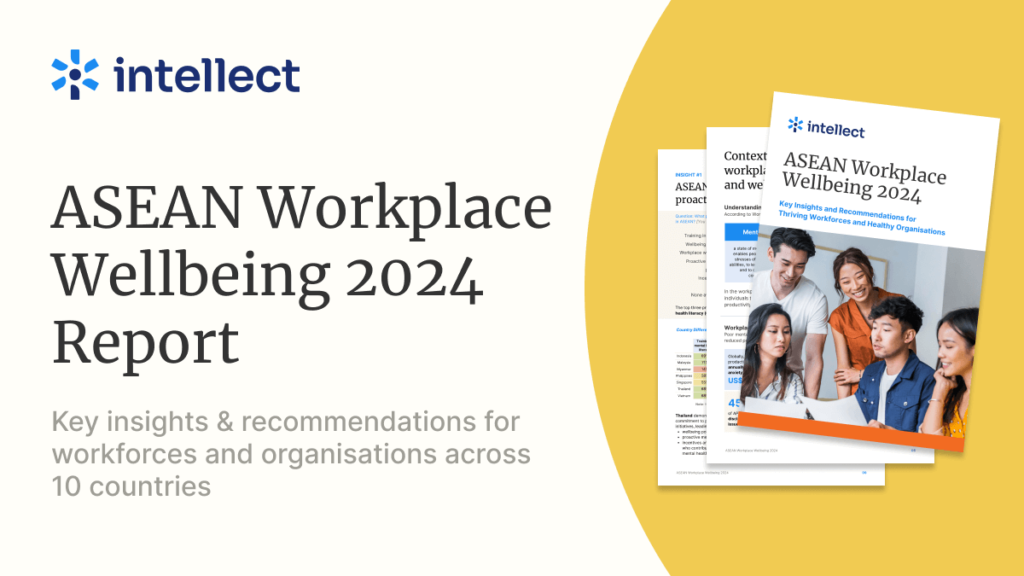Actor Edward Albert once said, “The simple act of caring is heroic.”
Caregivers everywhere know that caring for the elderly, persons with disabilities, or persons with mental health conditions can seem like a full-time job. It isn’t just about being responsible for a loved one’s physical and medical health. There are also the emotional, social, financial, and legal aspects of caregiving. The stress felt by caregivers in Singapore can be overwhelming; a survey recently found that 40% of caregivers were at risk of depression.
If this resonates with you, we want you to know that you’re not alone, and that there are resources to support you emotionally, physically, and financially. Below are some of them.

Training
Training is essential for caregivers in Singapore, whether you’re just embarking on their caregiving journey or already in the middle of it. Courses can help you understand what your loved one is experiencing, ensuring that you are well-informed and confident of taking on the responsibilities of caregiving.
1. Agency for Integrated Care (AIC)
AIC conducts multiple caregiver training courses that cover essential skills for planning and managing care.
Some essential courses are even supported by SkillsFuture Credits, including those that cover caring for your loved one’s daily needs—and caring for yourself.
AIC courses cover:
- ABCs of caregiving for loved ones that are (A) frail but ambulant, (B) bedbound, or (C) wheelchair bound
- Home nursing care
- Dementia care
- Stroke care and rehabilitation
- Special care for those with educational needs or specific learning difficulties
- Palliative and end-of-life care
To learn more, visit AIC Caregiving.
2. Social Service Institute (SSI)
While SSI caters to caregiving professionals, individuals can also benefit from their offering. Notably, SSI partners organisations such as the Dyslexia Association of Singapore Academy, Samaritans of Singapore, The Salvation Army Peacehaven to make the best practices of caregiving accessible.
Training areas cover:
- Eldercare
- Caring for people with disabilities
- Caring for children and youth
- Developing knowledge and skills to support individuals with mental health conditions
There’s also a Preparatory Caregiver Training Programme to equip you with pre-planning, managing, and communication skills. For a full list of courses, visit SSI Course Selection or learn more about SSI.
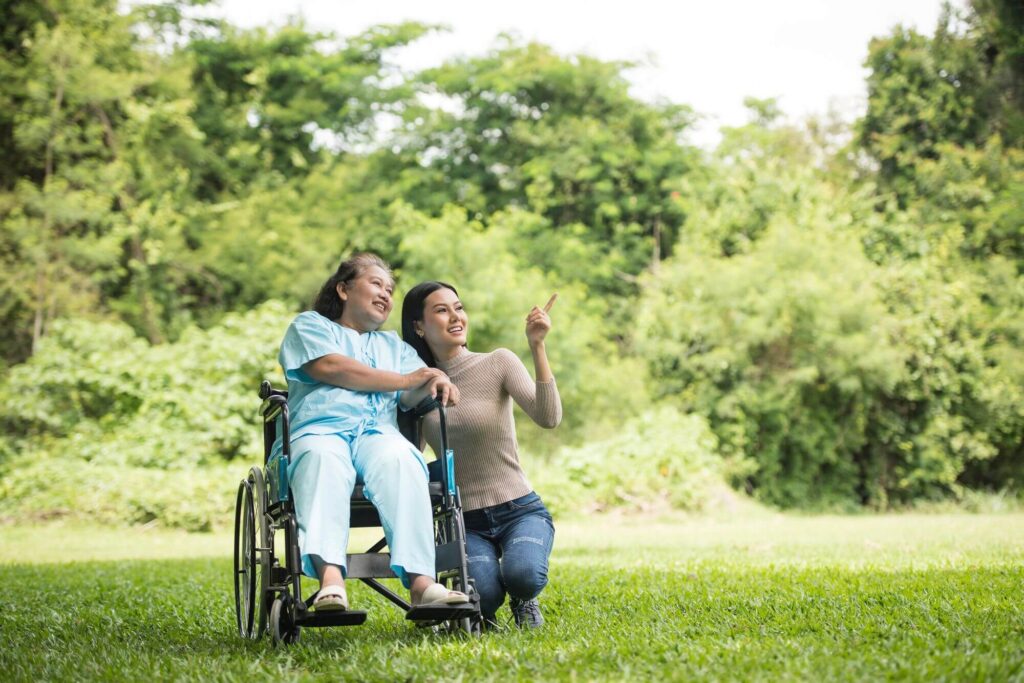
Social support
Making self-care a priority is a real challenge for caregivers, especially in an Asian context where filial piety is king. Until you acknowledge the complex emotions that come with caregiving, you may struggle to prevent burnout, manage negative emotions, and seek professional help. The latter includes support groups, respite services, and advance care planning resources.
3. Enabling Guide by SG Enable
Support groups offer a safe and inclusive space for caregivers to connect with one another, and are a great platform for you to not only receive support but also offer it.
If you’re looking after neurodiverse individuals or persons with disabilities, SG Enable has compiled a list of informal support groups around:
- Autism
- ADHD
- Special needs and learning disabilities
- Deaf and hearing loss
- Visual impairment
- Stroke survivors
- Cerebral palsy
To view the full list of support groups, visit Enabling Guide by SG Enable.
4. Caregivers Alliance Limited (CAL)
CAL goes beyond creating a support system for caregivers, offering training albeit in an informal way. Under their C2C program, caregivers provide one another with advice, coaching, and emotional support.
They’ve also partnered with the People’s Association to form Engagement to Empowerment (E2E) teams across six constituencies to provide community-based peer support for caregivers. They cover important topics such as:
- Understanding and managing emotions
- Preventing caregiver burnout
- Building resilience
- Finding meaning and purpose in caregiving
Learn more by visiting the CAL Caregiver Support page.
5. Tsao Foundation’s Hua Mei Centre for Successful Ageing (HMCSA)
Like the two organisations above, HMCSA’s Hua Mei Counselling and Coaching arm provides training and peer support for caregivers on similar journeys.
Additionally, they offer respite services to caregivers of the elderly, including home-based health services, home monitoring visits, and nursing home placements through their mobile clinic team. Their multi-disciplinary teams are also trained in basic dementia caregiving, geriatric, and gerontology.
To learn more, visit Hua Mei Centre for Successful Ageing.
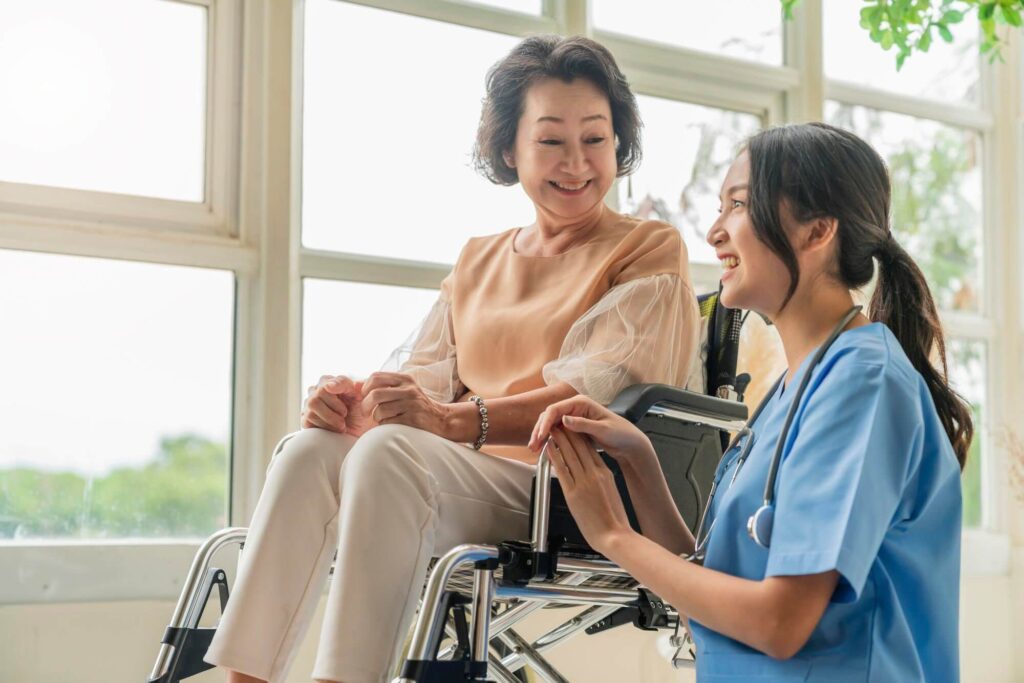
6. Night Respite by AIC
Juggling round-the-clock care with daily routines and full-time jobs is an uphill task—one that caregivers of individuals with dementia are familiar with.
This is where AIC’s Night Respite service comes in, catering to dementia patients with sundowning behaviour—the worsening of behavioural difficulties towards the end of the day.
Government subsidies are available for those who need the service, and more information on eligibility and application can be found on AIC’s Night Respite page.
7. My Legacy by LifeSG
Critical decisions about end-of-life arrangements are never easy, but knowing that both parties are on the same page can be freeing for the caregiver and empowering for their loved ones.
Advance care planning (ACP) has helped caregivers understand and respect the wishes of their loved ones by offering education, facilitating conversations, assisting with documentation, and communicating with healthcare providers.
Most polyclinics and hospitals can arrange for an ACP session. Alternatively, you can find an ACP facilitator by visiting My Legacy by LifeSG.
Financial support
8. SupportGoWhere
SupportGoWhere is a comprehensive, government-run portal for caregivers to search for schemes and support programs. Not sure where to begin? The Care Services Recommender can point you in the right direction depending on whom you’re caring for. The Support For You Calculator is another useful tool to get a sense of what you’re eligible for.
To learn more, visit SupportGoWhere.
9. Caregivers Training Grant & Home Caregiving Grant
Now, there are grants for the everyday and medical needs of your loved ones. But what about you?
Enter the Caregivers Training Grant (CTG), which covers the cost of essential training courses; and the Home Caregiving Grant (HCG), which provides up to $400 monthly cash payout. If you’ve had to hire a domestic worker to care for a loved one with disabilities, you may also apply for the Migrant Domestic Worker (MDW) Levy Concession and reduce the levy from $300 to $60 per month.
To learn more, visit the AIC Financial Assistance page.
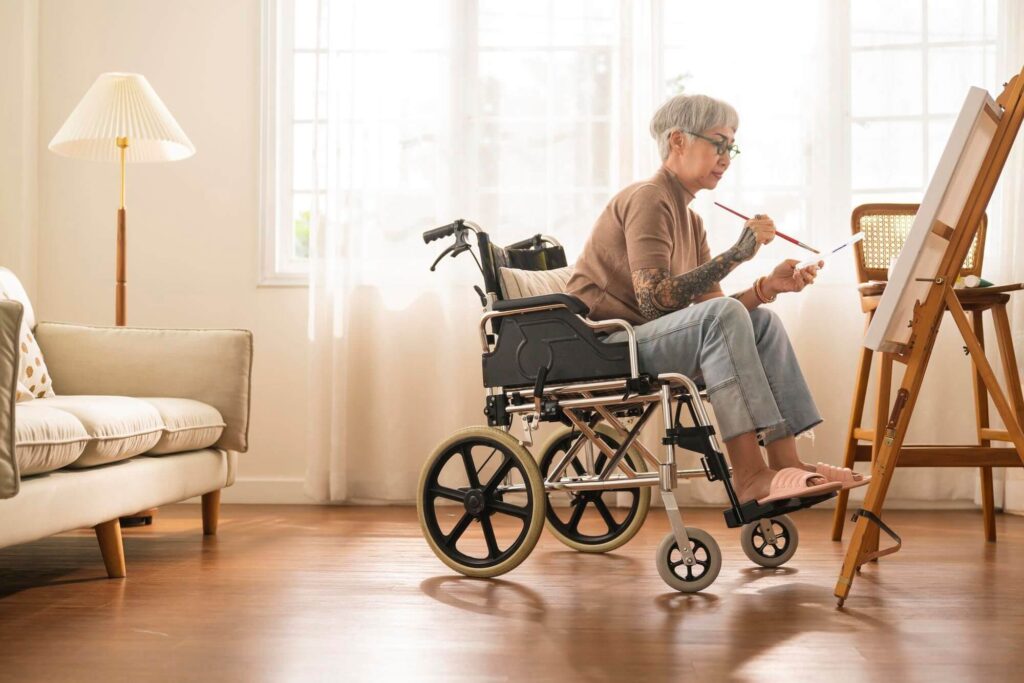
How Intellect can help caregivers in Singapore
Caregiving is a marathon, not a sprint. And to provide the best possible care for your loved ones, you first have to take care of yourself.
Intellect makes self-care simple on our app, offering self-guided interventions developed by Cognitive Behavioural Therapy practitioners and access to coaches, counsellors, and therapists if you need to talk to someone.
Learn more about our platform here.

